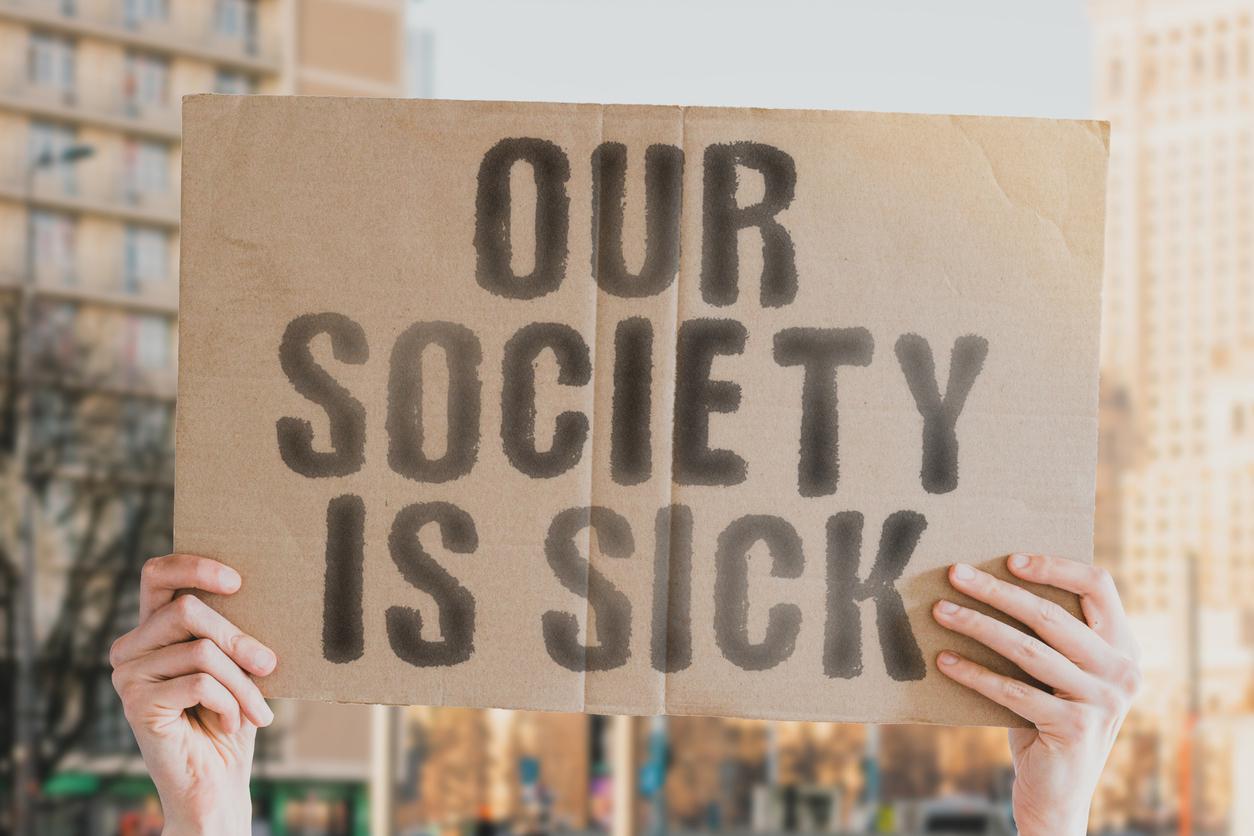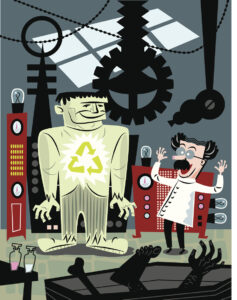A recently published paper from the Institute for Family Studies and the Wheatley Institution concludes that people who hold conservative political beliefs, especially those connected to religion and personal responsibility, are significantly happier than people on the political left. In the words of the study’s authors, psychologists Barry R. Schlenker, John Chambers, and Bonnie Le, “[l]iberals have become less happy over the last several decades,” a decline closely “associated with [their] increasingly secular attitudes and actions.”
Interestingly, this report is not the first time that researchers have documented a tendency for those on the right to lead more enjoyable lives. In 2020, for example, a Pew survey of over 10,000 people found that self-described liberals were far likelier than conservatives of the same age to be suffering from a serious emotional problem and twice as likely to say they had been diagnosed with a mental health disorder.
Even more telling, “very liberal” respondents were the most prone to experiencing psychological difficulties. In other words, the further left a respondent’s political ideology, the greater the odds that he or she was also depressed, chronically anxious, neurotically obsessive, or extremely lonely.
For all the well-documented studies connecting mental health to political outlook — and the understandable inclination of conservative editorialists to publicize these findings — their wider implications have yet to be fully appreciated. The leftist belief that a person’s fate is more often a product of environmental circumstances than of personal agency is the very same belief that underlies most psychiatric theories. One practitioner may view a patient’s emotional condition as the result of childhood trauma, another as the consequence of brain chemistry, and a third as the outcome of social and cultural conditioning, but none of these outlooks leaves much room for concepts like character development, free will, or religious faith.
All of this raises the intriguing question as to whether today’s record spending on conventional forms of mental health care may, in some way, be having a counterproductive impact. Certainly, the statistics would seem to indicate that the more the country invests in the emotional well-being of its citizens, the worse it seems to get.
Consider that the U.S. market for some kind of psychotherapy is currently estimated at a record $79.69 billion annually. It is even larger if we include the quasi-therapeutic services provided by social workers, school counselors, career counselors, human resource professionals, and all the academics doing psychology-related research.
Yet according to a June 15 report from the Centers for Disease Control and Prevention, depression in America continues to rise, with nearly one in five adults suffering from low self-worth, hopelessness, and suicidal thoughts. A month earlier, Gallup reported that the percentage of U.S. adults who have been diagnosed with depression (29 percent) and the percentage who are currently being treated for it (17.8 percent) are at the highest levels since Gallup began collecting relevant data. Adolescents seem to be suffering the most, not only with depression but also with obsessive-compulsive behavior, social anxiety, and various eating disorders.
As tempting as it is to blame some of this on COVID lockdowns, screening programs developed by Mental Health America suggest that the U.S. was on track to register current levels of emotional distress well before 2020. If the virus has had any impact, according to a recent Brookings Institute study, it has been to shift the ways people express their unhappiness — raising the number of opioid overdose deaths, for example, while reducing the national suicide rate.
The idea that modern psychology’s progressive-like determinism does more to harm society than to help it has, in fact, been around for some time. As far back as 1975, American Psychological Association (APA) President Donald T. Campbell began warning his colleagues that their materialistic framing of human behavior, absorbed by the culture through media and the related social sciences, would eventually cause more emotional distress than it cured.
There are “good reasons for modesty and caution in undermining traditional belief systems,” he said in his leadership address to that year’s convention. Campbell was expanding on the work of German philosopher Max Weber (1864–1920), who had worried that whatever the clinical benefit of reducing human behavior to predictable patterns, the larger effect would be to convince ordinary citizens that they were helpless victims of circumstances beyond their control.
Coming down to our own time, psychologist Clay Routledge recently wrote an advice column for the Wall Street Journal titled “Mental-Health Awareness Can Be Bad for Mental Health.” Americans’ emotional problems are very real, he said, but “in an attempt to bring more attention to the issue, we’re becoming a nation that increasingly defines itself as mentally fragile and unwell.”
Admittedly, there has always been an alternative explanation for why the rapid growth of psychological services since Sigmund Freud’s time has failed to make society any happier. First articulated in 1936 by Harvard-trained researcher Saul Rosenzweig, it argues that the most widely employed psychotherapies have never been the cures their practitioners claimed. The extent to which professional counseling has any value is achieved in getting patients to feel more comfortable about expressing their thoughts and emotions — something they could just as easily do with the help of a cleric, spouse, or good friend.
And in the late 1970s, journalist and political commentator Irving Kristol introduced a third explanation for the failure of America’s mental health care system — indeed, for all failing social services. Formally a political liberal who had supported President Lyndon B. Johnson’s Great Society, Kristol came to believe that whenever government becomes a major funder of any public service, those who deliver that service adjust their thinking and practice to conform to statist ideology, even when the result is sub-optimal care. Kristol’s suspicions have since been supported by studies showing that the majority of published social science and medical experiments cannot be replicated and by the admission of respected academics like Berkeley Law professor Stephen D. Sugarman that funder bias greatly distorts supposedly objective research.
Yet as differently as these two explanations explain America’s mental health problems, neither of them lets progressive thinking off the hook. For what better explains modern psychology’s inability to produce more useful treatments than its progressive tendency to dismiss organized religion and other forms of spirituality as little more than superstition? This is despite longstanding evidence that those who pray or engage in other religious practices are happier and even physically healthier than those who do not.
Similarly, any government-funded system of mental health care based on false or misleading research could never have evolved without a progressive-like faith in the ability of both donors and recipients to set aside economic self-interest. Not all the dubious theories underlying modern psychotherapy are big-government advocacy, and not every state-subsidized institution will accept a false reality just to please its benefactor, but as National Association of Scholars President Peter Wood recently observed, “[T]he intersection between the two is very large.”
None of this constitutes a solution for America’s mental health crisis. But it does suggest that the answers we all desire may be as much political as they are scientific.





